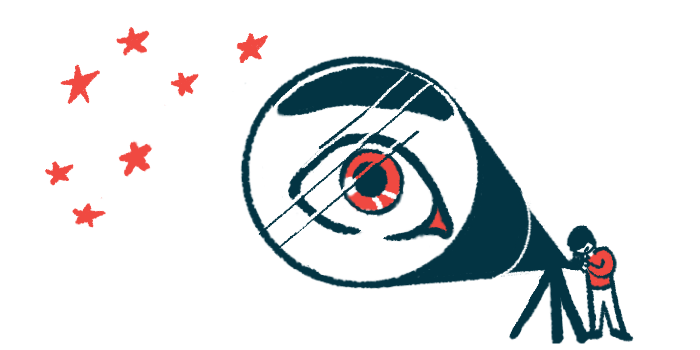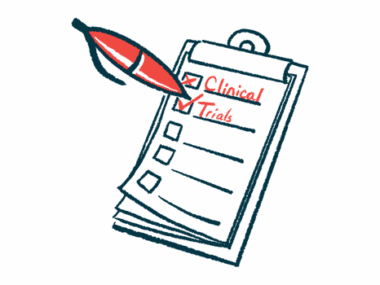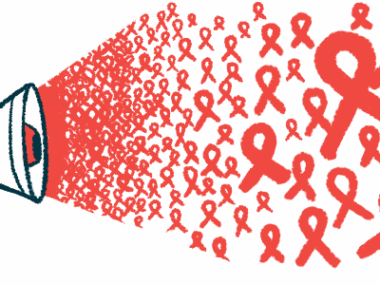First DEB patient dosed in trial of KB803 gene therapy eye drops
Experimental formulation was shown to improve vision in one person
Written by |

The first person has been dosed in a Phase 3 trial testing KB803, Krystal Biotech’s experimental eye drop formulation of the gene therapy beremagene geperpavec (B-VEC), for the treatment of eye problems in people with dystrophic epidermolysis bullosa (DEB).
Krystal already markets a topical gel formulation of B-VEC for treating DEB-related skin wounds in the U.S. and Europe under the brand name Vyjuvek.
To date, the new eye drop formula has been shown to heal eye damage and improve vision in a single DEB patient treated under compassionate use. This lets patients with serious or life-threatening illnesses get access to investigational medical products when no other treatment options are available and they are not eligible to participate in clinical trials.
The Phase 3 IOLITE trial (NCT07016750) is now further evaluating the formula’s safety and efficacy against a placebo.
IOLITE is recruiting 16 participants at sites in the U.S. Those eligible will be ages 6 months or older, with repeated corneal abrasions — scratches or wounds on the eye’s surface — due to DEB. They also need to first complete at least 12 weeks, or about three months, in a Krystal-sponsored natural history study (NCT06563414).
“The initiation of IOLITE is another important step for Krystal as we work tirelessly to treat DEB as comprehensively as possible,” Suma Krishnan, Krystal’s president of research and development, said in a company press release. “With dramatic and durable improvements already reported for the patient treated under compassionate use, we are excited by the potential of KB803 to restore full eye function and reduce or eliminate the otherwise persistent threat of vision loss imposed by these recurring corneal abrasions.”
More than 25% of DEB patients thought to experience ocular complications
People with DEB are lacking in collagen type 7 (COL7), a structural protein that’s important for holding layers of skin together, due to mutations in the COL7A1 gene. The main symptom is fragile skin that easily tears, blisters, and becomes infected.
The disease can also cause fragility of eye tissues, leading to corneal abrasions and scarring that cause discomfort and impair vision.
It’s thought that more than a quarter of DEB patients experience these ocular complications, and there are currently no corrective therapies available to prevent them, according to Krystal.
B-VEC is a redosable gene therapy designed to deliver healthy copies of COL7A1 to the body, enabling it to produce COL7 and ease DEB symptoms. Vyjuvek provides local delivery directly to skin cells in order to help resolve wounds, while KB803 is an eye drop formulation that’s administered directly onto the surface of the eye to address the disease’s ocular manifestations.
KB803 study to evaluate changes in symptoms’ frequency
In a report published last year, scientists described the first case of this eye drop formulation being used in a person with DEB — a 13-year-old boy whose skin wounds had previously responded well to Vyjuvek in a Phase 3 trial.
The boy was legally blind and had substantial eye scarring when treatment was started. He received 19 total doses of the gene therapy, and experienced complete corneal healing by three months and visual improvements by eight months. The treatment was well tolerated.
The Phase 3 IOLITE study is now assessing if such benefits can be observed in a larger group of people with DEB.
After completing the run-in period in the natural history study, participants will be randomly assigned to receive KB803 or a placebo — given as a single drop in each eye once weekly — for 12 weeks.
The groups will then be switched, with those previously given the placebo receiving KB803 and vice versa for another 12 weeks. The treatment will be administered at the patient’s home by a healthcare provider.
In addition to safety and tolerability, the study’s main goal is to evaluate the change in the average number of days per month that a person experiences corneal abrasion symptoms while receiving KB803 versus a placebo. Pain and other symptom questionnaires will be evaluated as secondary outcome measures.
IOLITE is expected to finish next year.







